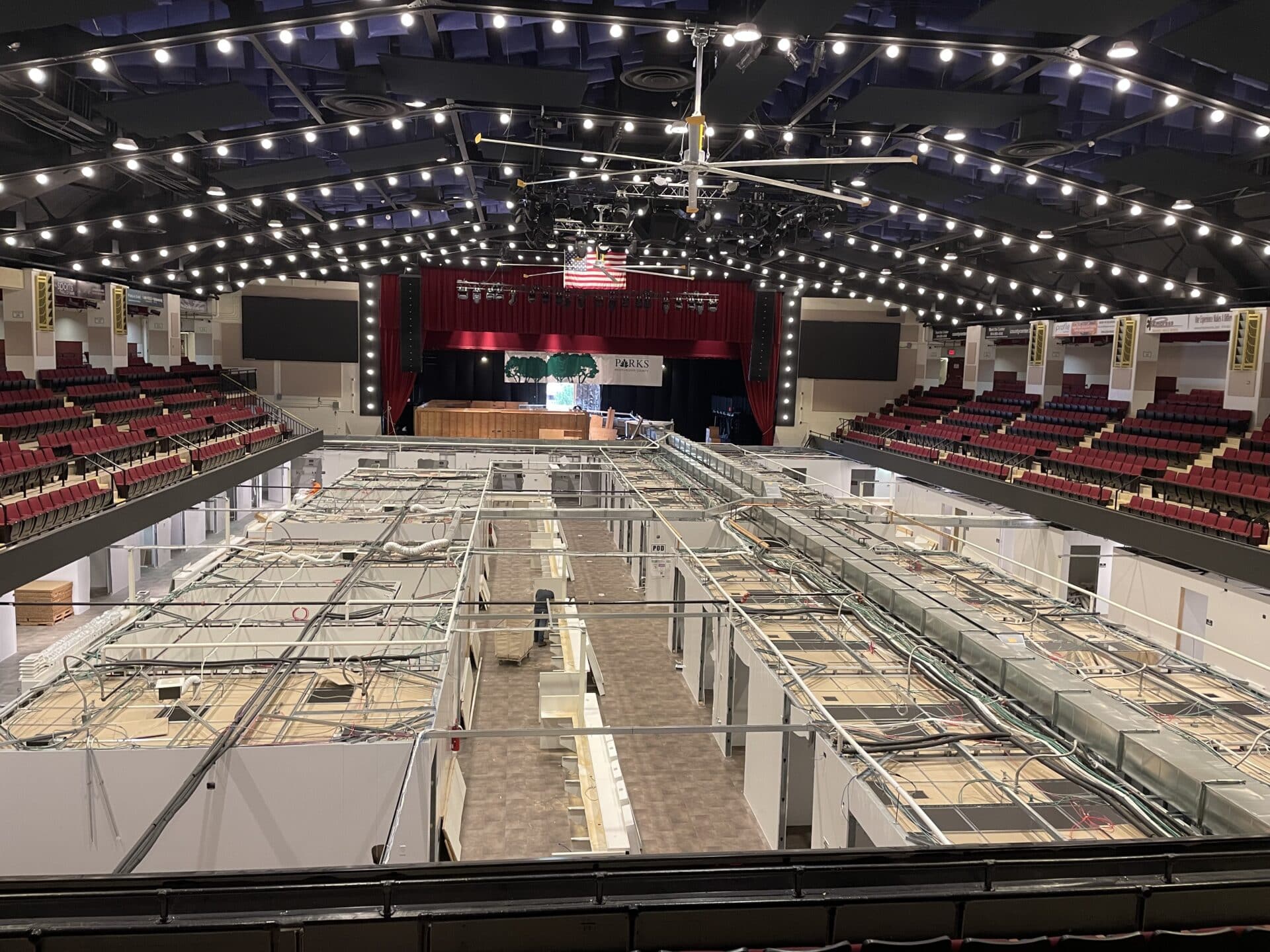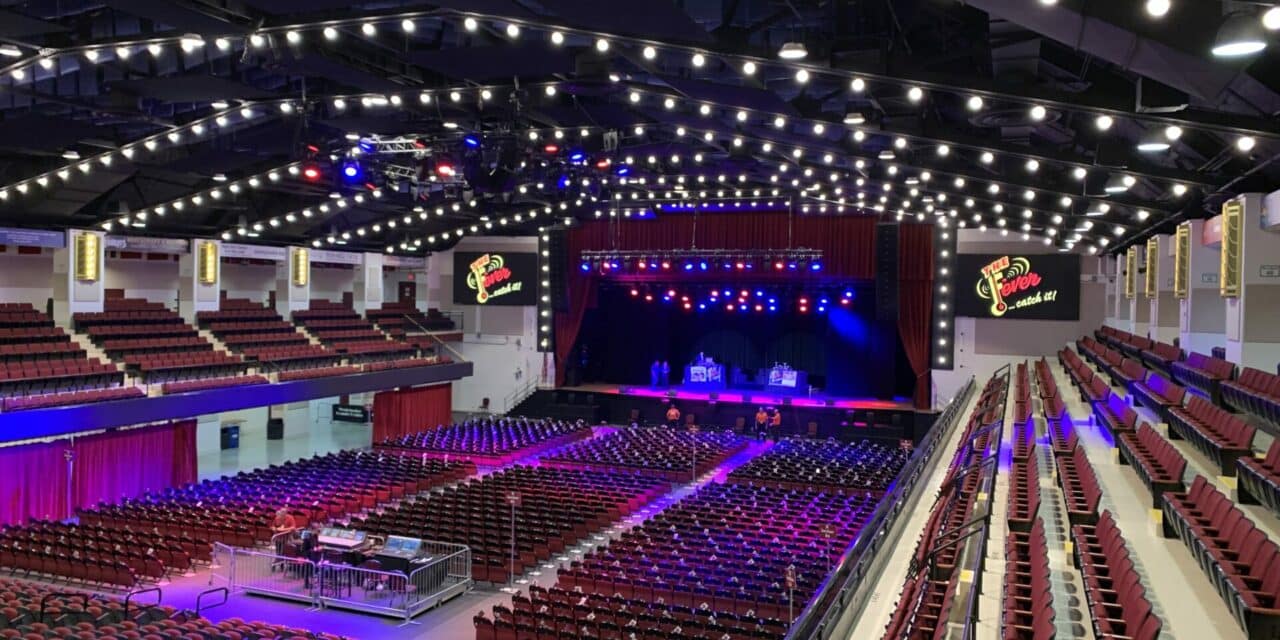GO WEST: Westchester County Center, which opened in 1930, can seat 5,000 people. (Courtesy Venue)
Post-retrofit after COVID slows biz
Multiple arenas stepped in to help the public during the pandemic, becoming vaccination sites, providing socially distanced polling places and serving as important community centers during a difficult time.
Not all venues were used as extensively to do so, though, or still feeling the effects of those efforts.
“We were initially made to be an ICU,” says William Schoenberg, operations manager at Westchester County Center in White Plains, New York, which includes a 5,000-seat arena and 400-seat theater. The complex, which opened in 1930, is owned and operated by the Department of Westchester County Parks, Recreation and Conservation.
“We were anticipating having ICU patients, thank goodness we never had one,” Schoenberg said. “But once that was decided, we went from testing right into vaccination and we issued about half a million vaccines here,” he said.
With COVID hitting New York especially hard and a nationwide panic quickly setting in over the course of 202o, the state worked quickly to set up Westchester Center as an ICU facility, which meant drilling through the floor of the arena’s basketball court to pipe in sanitary lines for the makeshift hospital rooms.
Fast forward through the pandemic, and supply chain issues and inflation meant replacing the floor was much more difficult than anticipated. Meanwhile, the NBA G-League Westchester Knicks that had called the arena home moved to Total Mortgage Arena in Bridgeport, Connecticut, for the 2021 season and hasn’t confirmed whether if or when it will return to Westchester County Center.

GREAT CARE: Westchester County Center administered more than 400,000 vaccinations during the pandemic. (Courtesy Venue)
“There was so much logistics into the restoration of this facility, with not only the workforce and the parameters that went into that, but the supply chain issues and everything that everybody was dealing with that, to get back open, we weren’t really confident to say we were ready to go until we were ready to go,” Schoenberg said. “We did our part for the betterment of the public, and hopefully saved lives, with 400,000 people coming through. Doing our best to serve the community is really what we do here. It’s just been a long road for us.”
Despite the challenges, the venue has been open for business since the end of January, with a few shows coming up including a WWE event in June and the Harlem Globetrotters along with community events, trade shows and conventions.
The facility has undergone millions of dollars worth renovations in recent years, including all new risers and chairs, new video boards and acoustical treatments, as well as new lighting and sound.
“We have a lot of the stuff that other venues require promoters to bring in,” Schoenberg said. “We have a lot of things that save promoters money that they can use when renting our facility. We do have a package that we think is great and it separates us from others in the region.”
On the facility’s third level is a 400-seat theater for comedy shows, private events and tribute bands.
In 2019, prior to the pandemic, the arena hosted The Doobie Brothers, “The Royal Affair” tour featuring members of Yes and Asia, plus hip-hop artist A Boogie Wit Da Hoodie, which Schoenberg said sold out and was a perfect fit for the venue, which can accommodate multiple configurations for general admission or seated floor.
“The right artist definitely does fit the room,” Schoenberg said, with rising stars and heritage acts hitting the sweet spot. “Because of the size of our venue, we embrace that because that’s really who we are.”
Schoenberg notes the difficulty of standing out when lumped into a major metropolitan area.
“White Plains is the county seat, we are literally the first county north of New York City north, and we have a lot to offer here,” Schoenberg said. The region has one million residents, bordered by the Long Island Sound to the east and the Hudson River to the west.
The nearby Capitol Theatre in Port Chester, New York, eight miles southeast of Westchester County Center, is often the music play in the region and has its own rich history, but Schoenberg says the venues offer different experiences and amenities and can both serve the community.
Another goal is to educate the industry on the market as being separate and potentially supplemental from the boroughs.
“We’re overlooked by Manhattan, we’re overlooked by Brooklyn — that’s where everybody wants to be and we get it, but the headaches of the city don’t exist here,” he said. “The parking issues, the driving issues, the traffic issues, all the things that go into doing anything down in the city. We have ample parking on the commuter line right out of grand central station, we just don’t have those issues.”







